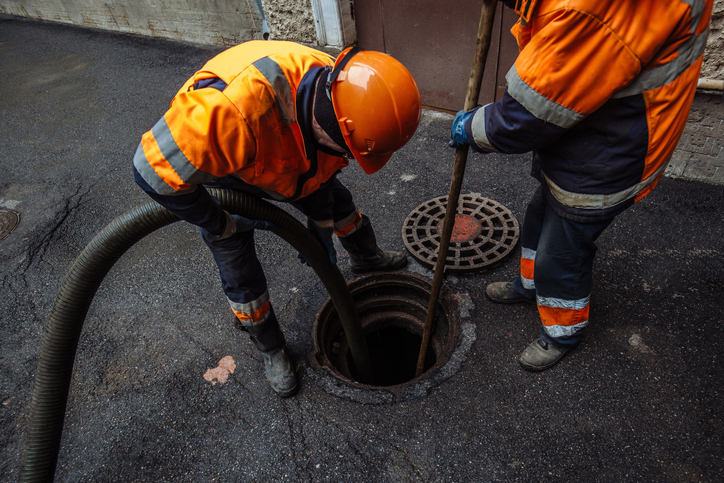Sewer systems are critical components of urban infrastructure, playing a vital role in waste management and public health. However, when sewer line repairs are postponed, the effects can extend far beyond inconvenience. Delaying necessary repairs can have significant environmental repercussions, affecting ecosystems, water quality, and human health. Understanding these impacts is essential for homeowners and communities alike. This article explores the environmental consequences of neglecting sewer drain repairs, highlighting the importance of timely maintenance and repair solutions.
1. Pollution of Water Bodies
One of the most immediate effects of delayed sewer drain restorations is the potential for pollution in nearby water bodies. When sewer lines leak or back up, untreated sewage can seep into rivers, lakes, and streams. This contamination not only harms aquatic life but also poses health risks to humans who come into contact with or consume contaminated water. Pathogens, heavy metals, and other harmful substances can disrupt ecosystems and lead to long-term ecological damage.
2. Groundwater Contamination
Sewage leaks can also infiltrate the groundwater supply, posing a serious risk to drinking water. Groundwater is a critical resource for many communities, particularly in rural areas where residents rely on wells. When sewage seeps into the ground, it can introduce bacteria, nitrates, and other harmful contaminants into the aquifer. This not only endangers human health but can also affect agricultural practices, leading to contaminated crops and livestock.
3. Impact on Soil Health
Delaying sewer drain rehabilitation can lead to soil contamination, affecting its health and productivity. Sewage can introduce excess nutrients, such as nitrogen and phosphorus, into the soil, leading to nutrient imbalances. This can disrupt local flora and fauna, resulting in reduced biodiversity. Additionally, contaminated soil may require costly remediation efforts, which can further strain environmental resources.
4. Contribution to Urban Runoff
In urban areas, delayed sewer repairs can exacerbate stormwater runoff problems. When sewer systems are not functioning properly, they may overflow during heavy rains, leading to combined sewer overflows (CSOs). These events discharge untreated sewage into streets and waterways, contributing to pollution and habitat destruction. Proper sewer maintenance can help mitigate these issues, reducing the burden on urban drainage systems and protecting local ecosystems.
5. Increased Greenhouse Gas Emissions
Sewage waste decomposition produces methane, a potent greenhouse gas that contributes to climate change. When sewer systems fail, the accumulation of untreated waste increases methane emissions. Delaying repairs not only worsens this issue but also undermines efforts to combat climate change. By addressing sewer problems promptly, communities can help minimize their carbon footprint and promote a healthier environment.
6. Higher Repair Costs
Neglecting sewer line repairs often leads to more significant issues down the line, resulting in higher repair costs. Small leaks can quickly escalate into major problems, requiring extensive excavation and replacement of entire sewer lines. These increased costs can place an additional financial burden on homeowners and municipalities. Investing in timely repairs can prevent these escalations, saving both money and resources.
7. Legal and Regulatory Consequences
Failing to address sewer drain issues can also lead to legal and regulatory repercussions. Many areas have strict environmental regulations regarding sewage management. Delays in repairs can result in fines, lawsuits, and potential liability for environmental damage. Compliance with regulations not only protects the environment but also helps communities avoid costly penalties.
8. Public Health Risks
The environmental impacts of delaying sewer pipe repairs extend to public health. Contaminated water sources can lead to outbreaks of waterborne diseases, such as cholera and dysentery. Communities with inadequate sewer systems face higher healthcare costs and reduced quality of life. Timely repairs can mitigate these risks, ensuring safe and reliable sanitation for all residents.
9. Community Awareness and Education
Addressing the environmental impact of delayed sewer system repairs requires community awareness and education. Homeowners must understand the importance of timely maintenance and the potential consequences of neglect. Educational programs can promote responsible plumbing practices, encouraging residents to report issues promptly and prioritize repairs.
10. Sustainable Solutions for the Future
Finally, adopting sustainable practices in sewer management can help mitigate the environmental impacts of delayed repairs. Implementing green infrastructure solutions, such as permeable pavement and rain gardens, can improve stormwater management and reduce runoff. Additionally, investing in advanced sewage treatment technologies can minimize pollution and enhance water quality.
Delaying sewer drain repairs can have far-reaching environmental consequences, affecting water quality, soil health, and public safety. Waterbody pollution, groundwater contamination, and increased greenhouse gas emissions highlight the urgency of addressing sewer issues promptly. By prioritizing timely repairs and adopting sustainable practices, communities can protect their environment, promote public health, and ensure a more resilient future. Homeowners play a crucial role in this process, and understanding the environmental impact of their decisions can lead to more responsible and sustainable plumbing practices.
Don’t wait to protect the environment! For expert sewer drain repairs, contact our professionals at Doyle Plumbing at 720-638-8839. Act now to minimize your impact and ensure your system runs smoothly!















